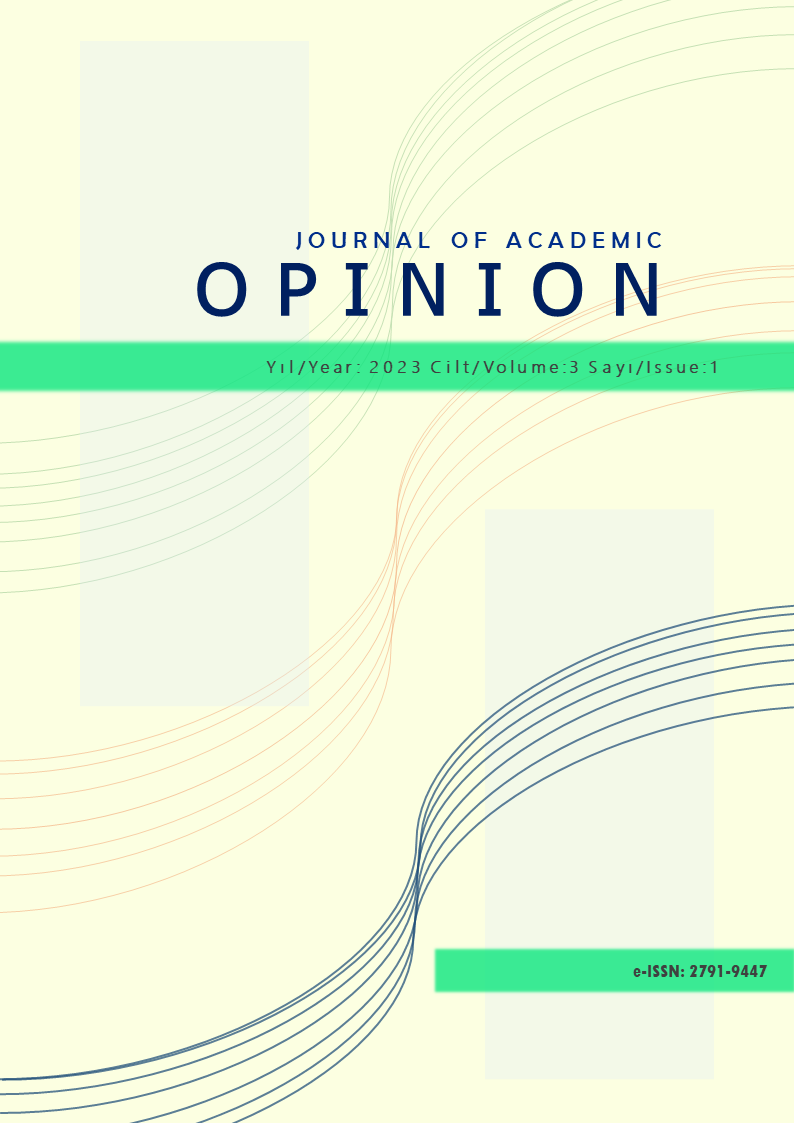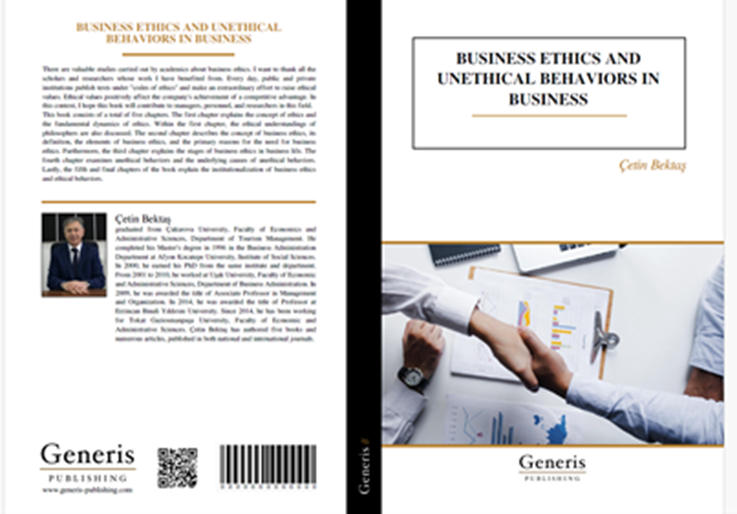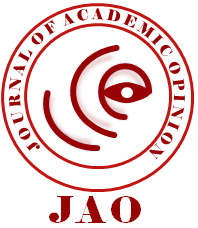An Empirical Analysis on the Relationship Between Law and Human Development in Regional Development: The Case of the Central African Economic and Monetary Union (CEMAC)
DOI:
https://doi.org/10.5281/zenodo.8075405Keywords:
Human development, Rule of law, CEMACAbstract
Africa has the largest number of underdeveloped countries in the world. Millions of people in the continent end their lives without attaining a standard of living worthy of human dignity. This fact has led to an increase in studies questioning the elements on which economic development in the continent depends. One of these factors is the legal system and how applicable it is. The 6 African countries examined in this study are former French colonies and have adapted the French European legal system to their legal infrastructure for various reasons. In this framework, the relationship between the rule of law and human development in these countries is investigated. In the study, pooled ordinary least squares method is applied and the model constructed with fixed effects estimator is estimated. In line with the literature, the findings indicate that human development is positively affected when the rule of law is ensured. Moreover, a similar result is obtained as the quality of regulation increases. Based on the results, increasing adherence to the law, and improving the quality of regulatory practices are recommended as elements of good governance, but this recommendation is necessary but not sufficient. These countries also need to achieve economic diversification by eliminating natural resource dependence, avoiding distortions in market efficiency through privileges and subsidies, reducing fiscal vulnerabilities, and achieving fairer distribution.
References
Acemoglu, D., ve Robinson, J. A. (2012). Why Nations Fail: The Origins of Power, Prosperity. New York: Crown Publishers.
Alam, M. R., Kitenge, E., ve Bedane, B. (2017). Government Effectiveness and Economic Growth. Economics Bulletin, 37(1), s. 222-227.
Aloui, Z. (2019). The impact of Foreign Direct Investment and the Institutional Quality on Welfare in Latin America and Sub-saharan Africa. MPRA: https://mpra.ub.uni-muenchen.de/95484/. Erişim tarihi (20.03.2023)
Altınbaş, D. (2011). İnsanlığa Karşı Suçlar ve Yeni-Sömürgecilik. Uluslararası Suçlar ve Tarih(11/12), s. 33-76.
Anand, S., ve Sen, A. (1994). Human Development Index: Methodology and Measurement. United Nations Development Programme. https://hdr.undp.org/content/human-development-index-methodology-and-measurement. Erişim tarihi (28.01.2023)
Asamoah, M. E., Adjasi, C., ve Alhassan, A. L. (2016). Macroeconomic Uncertainty, Foreign Direct Investment and Institutional Quality: Evidence from Sub-Saharan Africa. Economic Systems, 40(4), s. 612-621.
Asongu, S., Akpan, U. S., ve Isihak, S. R. (2018). Determinants of Foreign Direct Investment in Fast-Growing Economies: Evidence from the BRICS and MINT Countries. Financial Innovation, 4(26), s. 1-17.
Asoni, A. (2008). Protection of Property Rights and Growth as Political Equilibria. The Journal of Economic Surveys, 22(5), s. 953-987.
Assadzadeh, A., ve Pourqoly, J. (2013). The Relationship between Foreign Direct Investment, Institutional Quality and Poverty: Case of MENA Countries. Journal of Economics, Business and Management, 1(2), s. 161-165.
Bénassy‐Quéré, A., Coupet, M., ve Mayer, T. (2007). Institutional Determinants of Foreign Direct Investment. The World Economy, 30(5), s. 764-782.
Bongyu, M. G. (2009). The Economic and Monetary Community of Central Africa (CEMAC) and the Decline of Sovereignty. Journal of Asian and African Studies, 44(4), s. 389-406.
Buchanan, B., Le, Q. V., ve Rishi, M. (2012). Foreign direct investment and institutional quality: Some empirical evidence. International Review of Financial Analysis, 21(C), s. 81-89.
CAHF. (2019). Housing Finance in Africa - 10th Anniversary Edition. Güney Afrika: Centre for Affordable Housing Finance Africa. https://housingfinanceafrica.org/documents/2019-housing-finance-in-africa-yearbook-10th-anniversary-edition/. Erişim tarihi (25.03.2023)
Chikalipah, S., ve Makina, D. (2019). Economic Growth and Human Development: Evidence from Zambia. Sustainable Development, 27(6), s. 1023-1033.
Dam, K. W. (2006). The Law-Growth Nexus: The Rule of Law and Economic Development. Washington, D.C.: Brookings Institution Press.
Dima, B., Barna, F., ve Nachescu, M.-L. (2018). Does Rule of Law Support the Capital Market? Economic Research, 31(1), s. 461-479.
Dunning, J. H. (1998). Location and the Multinational Enterprise: A Neglected Factor? Journal of International Business Studies, 29(1), s. 45-66.
Eren, M., Çelik, A. K., ve Kubat, A. (2014). Determinants of the Levels of Development Based on the Human Development Index: A Comparison of Regression Models for Limited Dependent Variables. Review of European Studies, 6(1), s. 10-22.
IMF. (2022). Central African Economic and Monetary Community (CEMAC). Country Report No. 22/208. https://doi.org/https://doi.org/10.5089/9798400211942.002. Erişim Tarihi (01.03.2023)
İşcanoğlu Çekiç, A., ve Gültekin, H. (2019). R Uygulamalı Panel Veri Analizi ve Ampirik Bir Uygulama. Bursa: Ekin Yayınevi.
Joireman, S. F. (2001). Inherited Legal Systems and Effective Rule of Law: Africa and the Colonial Legacy. The Journal of Modern African Studies, 39(4), s. 571-596.
Jurčić, L., Franc, S., ve Barišić, A. (2020). Impact of Institutional Quality on Foreign Direct Investment Inflow: Evidence from Croatia. Business Systems Research Journal, 11(1), s. 44-58.
Keser, A., ve Gökmen, Y. (2018). Governance and Human Development: The Impacts of Governance Indicators on Human Development. Journal of Public Administration and Governance, 8(1), s. 26-39.
Kwon, H.-j., ve Kim, E. (2014). Poverty Reduction and Good Governance: Examining the Rationale of the Millennium Development Goals. Development and Change, 45(2), s. 353-375.
La Porta, R., Lopez-de-Silanes, F., ve Shleifer, A. (2008). The Economic Consequences of Legal Origins. Journal of Economic Literature, 46(2), s. 285-332.
Malby, S. (2017). The Rule of Law and Sustainable Development. Commonwealth Law Bulletin, 43(3-4), s. 521-532.
Masron, T. A., ve Nor, E. (2013). FDI in ASEAN-8: Does Institutional Quality Matter? Applied Economics Letters, 20(2), s. 186-189.
Mengistu, A. A., ve Adhikary, B. K. (2012). Does Good Governance Matter for FDI Inflows? Evidence from Asian Economies. Asia Pacific Business Review, 17(3), s. 281-299.
Mombeuil, C., ve Diunugala, H. P. (2021). UN Sustainable Development Goals, Good Governance, and Corruption: The Paradox of the World's Poorest Economies. Business and Society Review, 126(3), s. 311-338.
North, D. C. (1990). Institutions, Institutional Change, and Economic Performance. Cambridge, Birleşik Krallık: Cambridge University Press.
Nyström, K. (2008). The Institutions of Economic Freedom and Entrepreneurship: Evidence from Panel Data. Public Choice, 136, s. 269-282.
Paul, J., ve Jadhav, P. (2019). Institutional Determinants of Foreign Direct Investment Inflows: Evidence from Emerging Markets. International Journal of Emerging Markets, 15(2), s. 245-261.
Posner, R. A. (1998). Creating a Legal Framework for Economic Development. The World Bank Research Observer, 13(1), 1-11.
Prado, M. M. (2010). What is Law and Development? Revista Argentina de Teoria Juridica, 11(1), s. 1-20.
Reynolds, P. D., Hay, M., ve Camp, S. M. (1999). Global entrepreneurship monitor. Global Entrepreneurship Monitor. https://www.gemconsortium.org/report. Erişim tarihi (25.03.2023)
Sabir, S., Rafique, A., ve Abbas, K. (2019). Institutions and FDI: Evidence from Developed and Developing Countries. Financial Innovation, 5(8). https://doi.org/https://doi.org/10.1186/s40854-019-0123-7
Saha, S., Sadekin, M. N., ve Saha, S. K. (2022). Effects of Institutional Quality on Foreign Direct Investment Inflow in Lower-Middle Income Countries. Heliyon, 8(10). https://doi.org/10.1016/j.heliyon.2022.e10828
Sohag, K., Bamanga, U., ve Alam, M. (2018). Stata Command for Panel Data Analysis. https://doi.org/10.13140/RG.2.2.13812.45444/1
Theberge, L. J. (1980). Law and Economic Development. Denver Journal of International Law ve Policy, 9(2), s. 231-238.
Topcu, Y. E. (2022). The Comparative Advantages in the Wooden Furniture Industry: Does the Export Price Matter? Competitiveness Review. https://doi.org/10.1108/CR-03-2022-0045
Tsegaw, P. C. (2020). The Nexus Between Good Governance Indicators And Human Development Index In Africa : An Econometric Analysis. Journal of Public Administration and Governance, 10(2), s. 1-19.
Ulucak, R., Danish, ve Li, N. (2020). The Nexus between Economic Globalization and Human Development in Asian Countries: An Empirical Investigation. Environmental Science and Pollution Research, 27, s. 2622-2629.
UNCTAD. (2023). UNCTAD Data Center. https://unctadstat.unctad .org/wds/ReportFolders/reportFolders.aspx?sCS_ChosenLang=en. Erişim tarihi (29.03.2023)
UNDP. (2023). Human Development Index (HDI). https://hdr.undp.org/data-center/human-development-index#/indicies/HDI. Erişim tarihi (20.01.2023)
Van Stel, A., Storey, D. J., ve Thurik, A. R. (2007). The Effect of Business Regulations on Nascent and Young Business Entrepreneurship. Small Business Economics, 28(2-3), s. 171-186.
Van, G. (2022). The Impact of Political Institutions on Human Development: An Empirical Analysis. MPRA: https://mpra.ub.uni-muenchen.de/113103/. Erişim tarihi (15.03.2023)
WB. (2021a). World Development Indicators. Surface area (sq. km), Surface Area (sq. km). https://data.worldbank.org/indicator/ AG.SRF.TOTL.K2. Erişim tarihi (04.01.2023)
WB. (2021b). World Development Indicators. GNI, Atlas Method (current US$). https://data.worldbank.org/indicator/NY.GNP.ATLS.CD. Erişim tarihi (04.01.2023)
Wennekers, S., ve Thurik, R. (1999). Linking Entrepreneurship and Economic Growth. Small Business Economics, 13(1), s. 27-55.
WGI Aggregation Methodology. (2023). https://info.worldbank.org/ governance/wgi/Home/Documents#wgiAggMethodology. Erişim tarihi (10.02.2023)
WTO. (2013). Countries of the Central African Economic and Monetary Community (CEMAC). Trade Policy Review. https://www.wto.org/english/tratop_e/tpr_e/s285_e.pdf. Erişim tarihi (23.03.2023)
Zaric, S., ve Babic, V. (2021). Is the Rule of Law Essential for Economic Growth? Evidence from European Countries. Journal Transition Studies Review, 28(2), s. 3-18.

Downloads
Published
How to Cite
Issue
Section
License
Copyright (c) 2023 Journal of Academic Opinion

This work is licensed under a Creative Commons Attribution 4.0 International License.




